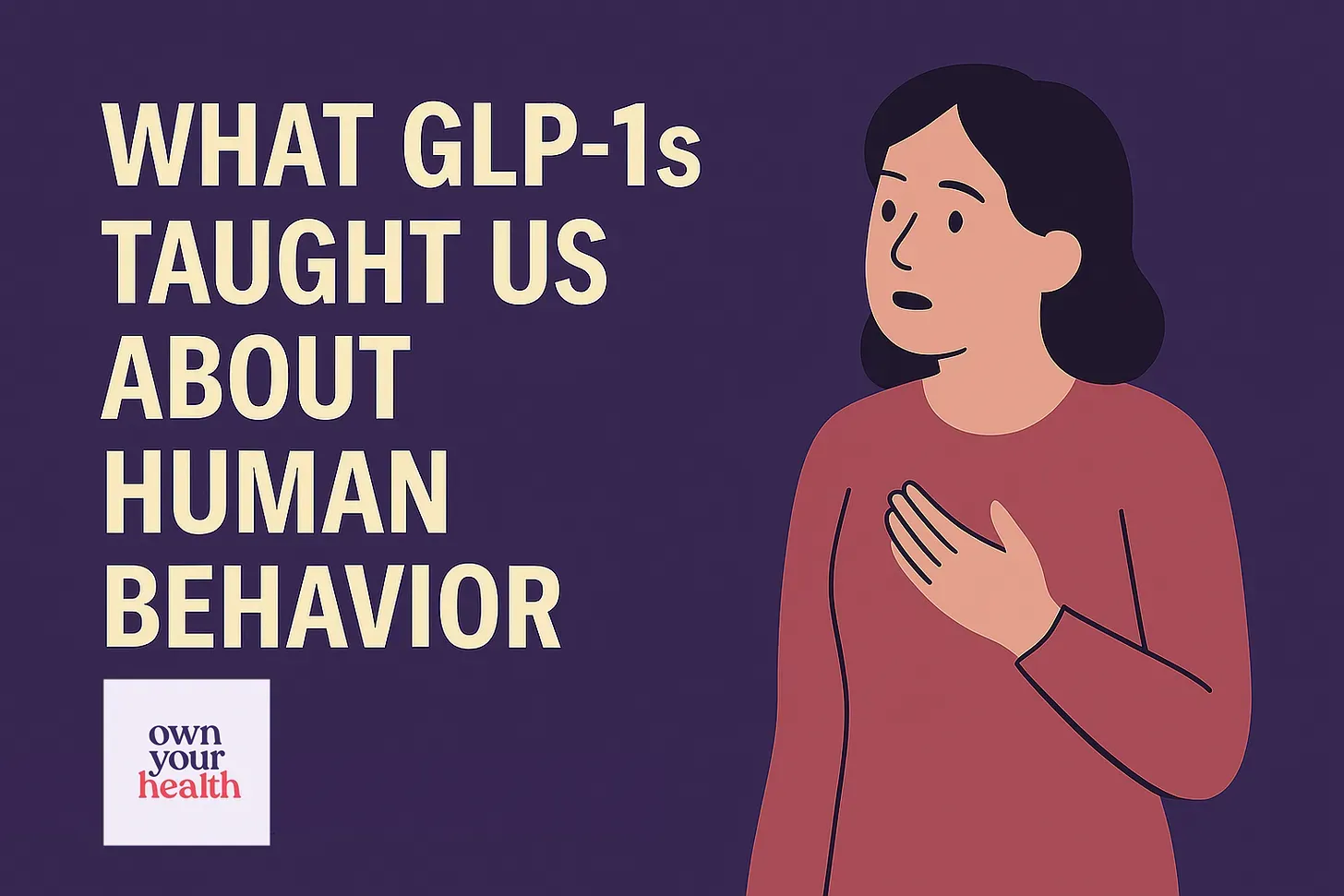What GLP-1 Taught Us About Human Behavior
November 25, 2025

Everyone has an opinion about GLP-1s.
From doctors and investors to pharmaceutical companies, journalists, and influencers, everyone agrees these medications are reshaping weight loss, healthcare, and even culture.
But after five years of building Fitnescity Health and partnering with nearly 1,000 hospitals and diagnostic centers across the U.S., I’ve come to realize something more subtle:
GLP-1s didn’t just change how people lose weight.
They changed how people engage with their health.
And what we’ve seen behind the scenes—in tens of thousands of DEXA scans, VO2 Max tests, and metabolic assessments—tells a very different story than what you read in headlines.
The Unexpected Trend: GLP-1s Created a Surge in Health Curiosity
Before GLP-1s, most people booked a DEXA scan or VO2 Max test for one of two reasons: performance or longevity. They wanted to track body composition, measure fitness, or get ahead of age-related decline.
Then GLP-1s arrived, and suddenly, we saw a new pattern.
People who had never tracked a single health metric now wanted to know everything:
- Am I losing fat or muscle?
- Is my metabolism slowing down?
- Is rapid weight loss affecting my cardiovascular fitness?
- Am I actually getting healthier or just lighter?
What surprised me most wasn’t the volume of new test takers.
It was the motivation.
Once people start losing weight rapidly, they want to understand what’s really happening inside their bodies.
For many, GLP-1s became the first gateway into preventive health.
But What They Expect… Isn’t What the Data Shows
Most people start GLP-1s with the same assumption:
If the scale is going down, my health must be improving.
But the data tells a more complicated story.
Across thousands of DEXA scans, especially repeat tests from GLP-1 users, we see three recurring patterns:
- Lean mass loss is common — and often underestimated.
Rapid weight loss makes it challenging to preserve muscle, especially without structured strength training. - VO2 Max doesn’t automatically improve.
Weight may drop, but cardiovascular fitness doesn’t improve unless people actively train. - Metabolic rate often declines.
RMR tests show decreases that make long-term maintenance harder if habits aren’t built along the way.
None of this means GLP-1s don’t work.
They work incredibly well.
But they reveal something we often forget:
Weight loss and health improvement are not the same thing.
What We’re Seeing Across 1,000+ Test Centers
Because Fitnescity Health spans hundreds of institutions—hospitals, diagnostic centers, sports labs, and academic facilities—we see patterns that individual clinics can’t.
Here’s what stands out:
- Providers are increasingly referring GLP-1 patients for monitoring.
- Weight-loss clinics are adding DEXA as a standard part of treatment.
- GLP-1 users are likely to book repeat DEXA scans.
- Many progress from DEXA → RMR → VO2 Max once they see how much information they’ve been missing.
This has become a new behavioral funnel:
GLP-1 → curiosity → data → action.
GLP-1s didn’t just change body weight.
They changed the way people interact with their health data—often for the first time.
The Silent Cost: What Rapid Weight Loss Exposes
Here is the part that few people talk about.
Shortcuts reveal hidden weaknesses.
When weight drops quickly, the body shows the imbalances it’s been holding for years:
- Weak muscle foundation
- Low cardiovascular capacity
- Sluggish metabolism
- Poor strength-to-weight ratio
- High visceral fat despite lower total weight
Losing muscle isn’t just an aesthetic issue. It’s one of the strongest predictors of future frailty, insulin resistance, mobility loss, metabolic slowdown, and early mortality.
Muscle mass is tightly linked to longevity, bone density, balance, immune resilience, and even cognitive health.
When rapid weight loss accelerates muscle and bone loss, healthspan—the number of years lived in good health—can quietly shrink even as the number on the scale improves.
For many, this becomes the wake-up call that pushes them to start resistance training, address nutrition, and rebuild metabolic health — not just lose weight.
The Better Path: GLP-1 + Testing + Strength
In many cases, GLP-1 medications are life-changing.
But what we’ve seen nationwide is clear:
The people who maintain their results and actually improve their health are the ones who pair medication with data and strength.
That means:
- DEXA to protect lean mass
- VO2 Max to build cardiovascular fitness
- RMR to understand and maintain metabolic rate
- Strength training as the non-negotiable foundation
This is precisely the kind of proactive, metric-driven approach we’ve been building at Fitnescity Health.
A Final Thought
If GLP-1s revealed anything, it’s this: People have always struggled with weight—emotionally, physically, and biologically.
What ultimately influences long-term outcomes is understanding how the body is changing beyond the scale. Without visibility into muscle and bone mass, rapid weight loss can unintentionally accelerate aging rather than improve health.
